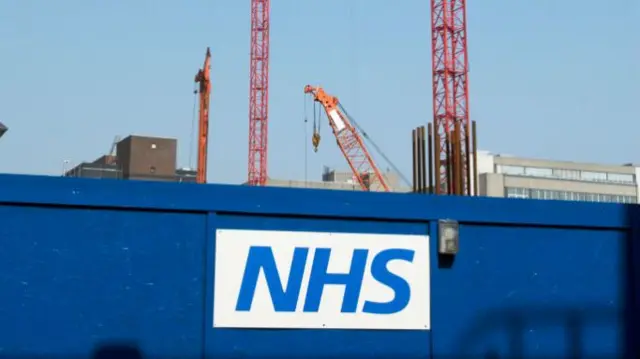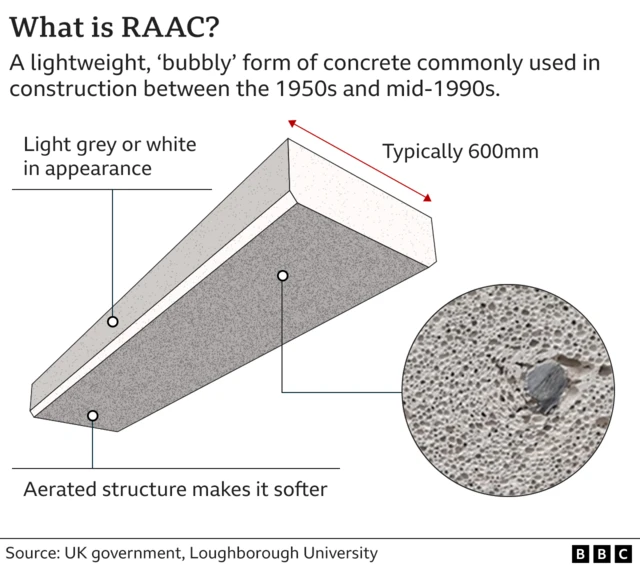Buildings at more than 50 schools at risk of sudden collapse - ministerpublished at 09:35 BST 1 September 2023
 Hazel Shearing
Hazel Shearing
Education correspondent
Buildings at more than 50 schools in England were at risk of sudden collapse due to dangerous concrete, a minister has said.
It comes as more than 100 other schools scramble after being told to close buildings containing aerated concrete unless they are made safe.
In total, 156 schools have been confirmed as having reinforced autoclaved aerated concrete (RAAC) since 2022.
Of those, 52 were deemed a critical risk, and safety measures have already put in place.
Asked on BBC Breakfast whether buildings at those 52 schools "could have potentially collapsed", Schools Minister Nick Gibb said: "Yes, and that's why we took action."
A further 104 schools with confirmed RAAC were deemed non-critical.
New guidance issued on Thursday told them to shut buildings and rooms with RAAC unless they have safety measures in place.
It has prompted a race to make alternative arrangements just days before the start of a new school term.






